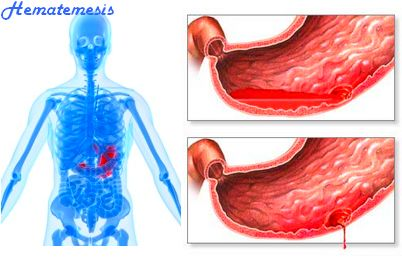Corticosteroids and NSAIDs (nonsteroidal anti-inflammatory drugs) are contraindicated in patients with hematemesis and chronic liver disease because they can exacerbate bleeding and increase the risk of further complications.
NSAIDs work by inhibiting prostaglandins, which are involved in inflammation and pain, but also in the maintenance of the gastrointestinal mucosa. Inhibition of prostaglandins reduces mucosal protection and increases the risk of ulceration and bleeding in the stomach and intestine. Patients with chronic liver disease already have impaired liver function, which can lead to decreased synthesis of clotting factors and platelets, making them more susceptible to bleeding. The use of NSAIDs in these patients can further impair coagulation and increase the risk of gastrointestinal bleeding.
NSAIDs metabolism occures in liver, Patients with chronic liver disease already have impaired liver function then NSAIDs worsen liver functions
Corticosteroids also have an anti-inflammatory effect and can impair the production of prostaglandins, leading to a similar increased risk of gastrointestinal bleeding. In addition, long-term use of corticosteroids can cause significant adverse effects, such as osteoporosis, hypertension, and increased risk of infections, which can be particularly detrimental to patients with chronic liver disease.
Therefore, the use of corticosteroids and NSAIDs should be avoided in patients with hematemesis and chronic liver disease. Alternative medications, such as acetaminophen, tramadol, or opioids, can be used to manage pain in these patients. Additionally, proton pump inhibitors or H2 receptor antagonists may be prescribed to reduce the risk of gastrointestinal bleeding in patients who require long-term use of nonsteroidal anti-inflammatory drugs.
